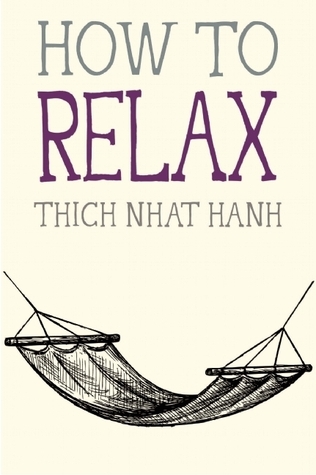What do you think?
Rate this book


120 pages, Paperback
Published September 18, 2015
ž«█ī┘ä█ī ž¦ž▓ ┘ģž¦ ┘å┘ģ█īŌĆīž«┘łž¦┘ć█ī┘� ž©┘ć ┘ģ┘åž▓┘ä ž»ž▒┘ł┘åŌĆī┘ģž¦┘� ž©ž▒┘ł█ī┘ģ. ┘ģ█īŌĆīž¬ž▒ž│█ī┘�. ž▒┘åž¼ŌĆī┘ćž� ┘ł ž»ž▒┌»█īž▒█īŌĆī┘枦█� ž»ž▒┘ł┘å█ī ž©ž│█īž¦ž▒█ī ┘ćž│ž¬ ┌®┘ć ┘ģ█īŌĆīž«┘łž¦┘ć█ī┘� ž¦ž▓ž┤ž¦┘å ┘Šž▒┘ć█īž▓ ┌®┘å█ī┘ģ. ž┤┌®ž¦█īž¬ ┘ģ█īŌĆī┌®┘å█ī┘� ┌®┘ć ž©ž▒ž¦█ī ž▓┘åž»┌»█ī ┌®ž▒ž»┘å ┘ł┘鞬 ┘åž»ž¦ž▒█ī┘ģžī ž©ž¦ž¦█ī┘åŌĆīžŁž¦┘� ž©ž¦ ┘åž▒┘üž¬┘å ž©┘ć ┘ģ┘åž▓┘ä ž»ž▒┘ł┘å█īŌĆī┘ģž¦┘� ž│ž╣█ī ┘ģ█īŌĆī┌®┘å█ī┘� ┘ł┘鞬 žóž▓ž¦ž»┘ģž¦┘å ž▒ž¦ ž¬┘ä┘ü ┌®┘å█ī┘ģ. ž©ž¦ ž▒┘łž┤┘å ┌®ž▒ž»┘å ž¬┘ä┘ł█īž▓█ī┘ł┘å █īž¦ ž©ž▒ž»ž¦ž┤ž¬┘å █ī┌® ž▒┘ģž¦┘å █īž¦ ┘ģž¼┘ä┘ćžø █īž¦ ž©█īž▒┘ł┘å ž▒┘üž¬┘å ┘ł ž▒ž¦┘å┘åž»┌»█ī ┌®ž▒ž»┘å ž¦ž▓ žó┘å ┘üž▒ž¦ž▒ ┘ģ█īŌĆī┌®┘å█ī┘�. ž¦ž▓ ž«┘łž»┘ģž¦┘å ┘üž▒ž¦ž▒ ┘ģ█īŌĆī┌®┘å█ī┘� ┘ł ┘ģž▒ž¦┘éž© ž©ž»┘åžī ž¦žŁž│ž¦ž│ž¦ž¬ █īž¦ ┘łžČž╣█īž¬ ž░┘ć┘å█īŌĆī┘ģž¦┘� ┘å█īž│ž¬█ī┘ģ. ž©ž¦█īž» ž©┘ć ž«ž¦┘å┘ć ž©ž▒┌»ž▒ž»█ī┘ģ. ž¦┌»ž▒ ž©ž¦ ┘łž¦┘äž»█ī┘åžī ž¼ž¦┘ģž╣┘ć █īž¦ ┌®┘ä█īž│ž¦ ž│ž▒ ž¼┘å┌» ž»ž¦ž▒█ī┘ģ ž┤ž¦█īž» ž©┘ć ž«ž¦žĘž▒ ž¼┘å┌»█īŌĆīž│ž� ┌®┘ć ž»ž▒┘ł┘åŌĆī┘ģž¦┘� žĘž║█īž¦┘å ┘ģ█īŌĆī┌®┘åž�. ž¼┘å┌» ž»ž▒┘ł┘å█ī ž¼┘å┌»ŌĆī┘枦█� ž»█ī┌»ž▒ ž▒ž¦ žóž│ž¦┘å ┘ģ█īŌĆī┌®┘åž�. ┘ģ█īŌĆīž¬ž▒ž│█ī┘� ž©┘ć ž«ž¦┘å┘ć ž©ž▒┘ł█ī┘ģ ┌å┘ł┘å ž©ž¦ ┌®┘ģž©┘łž» ž¦ž©ž▓ž¦ž▒ ┘ł ┘łž│ž¦█ī┘ä ┘ģž▒ž¦┘éž©ž¬ ž¦ž▓ ž«┘łž»┘ģž¦┘å ┘ģ┘łž¦ž¼┘ć█ī┘ģ. ž©ž¦ ┘ģž¼┘ćž▓ ž┤ž»┘å ž©┘ć ┬½žó┌»ž¦┘ć█ī┬╗ ┘ģ█īŌĆīž¬┘łž¦┘å█ī┘� ž»ž▒ ž¦┘ģ┘å█īž¬ ž©┘ć ž«ž¦┘å┘ć ž©ž▒┘ł█ī┘ģ ┘ł ž»ž▒ ž▒┘åž¼žī ž¦┘üž│┘łž│ ┘ł ž¦┘üž│ž▒ž»┌»█ī ž║ž▒┘é ┘åž┤┘ł█ī┘ģ. ž©ž¦ ┌®┘ģ█ī žó┘ģ┘łž▓ž┤ ž»█īž»┘å ┘ł ž¬┘ģž▒█ī┘å ž▒ž¦┘ćŌĆīž▒┘üž¬┘� žó┌»ž¦┘枦┘å┘ć ┘ł ž¬┘å┘üž│ žó┌»ž¦┘枦┘å┘ć ┘ģ█īŌĆīž¬┘łž¦┘å█ī┘� ž©┘ć ž«ž¦┘å┘ć ž©ž▒┘ł█ī┘ģ ┘ł ž»ž▒ž» ┘ł ž▒┘åž¼ŌĆī┘ģž¦┘� ž▒ž¦ ž©┘Šž░█īž▒█ī┘ģ.